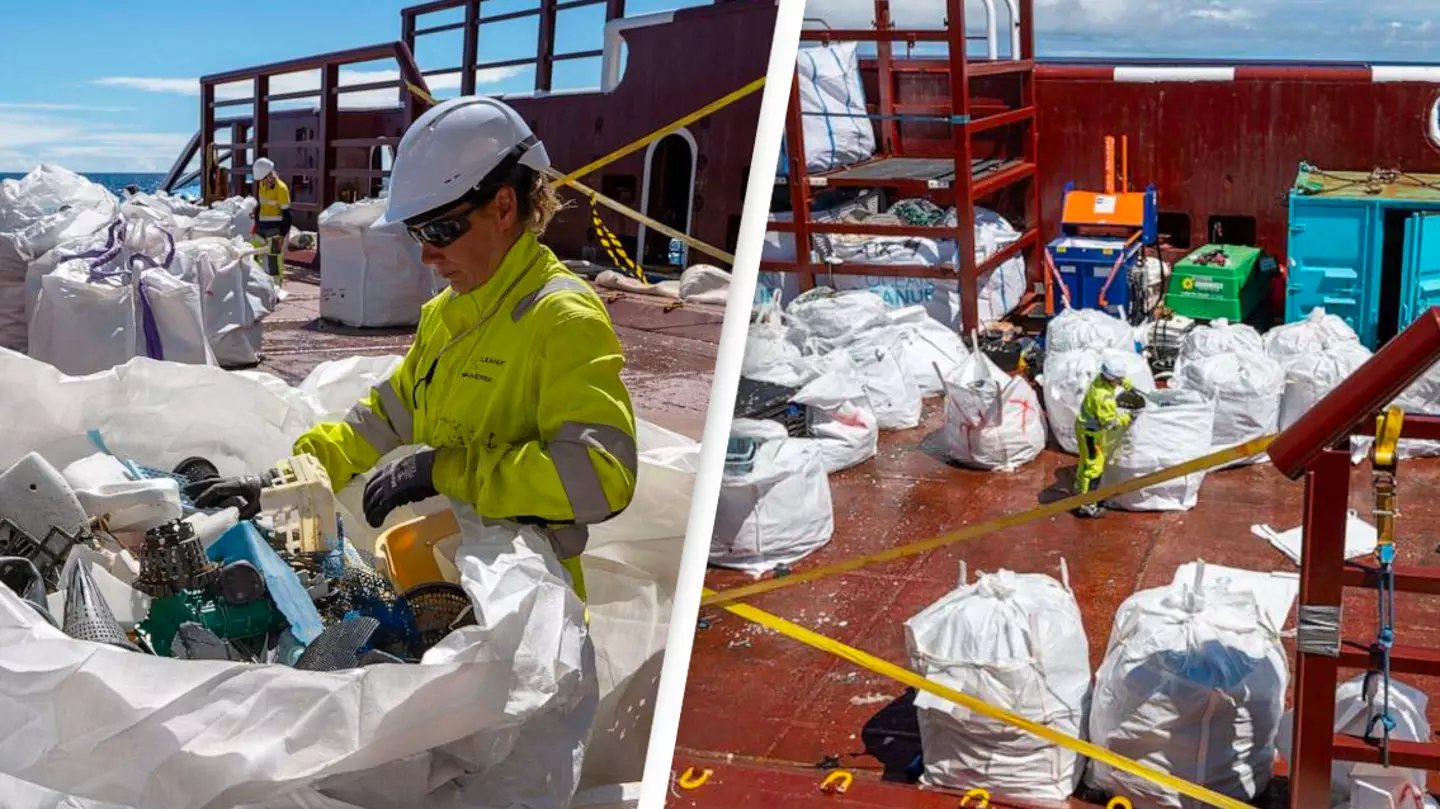
A cleanup crew has removed over 25,000 pounds of rubbish from the ocean in one extraction.
The Ocean Cleanup, a nonprofit environmental engineering organisation, removed the rubbish from the Great Pacific Garbage Patch earlier this month.
"This week we had our largest ever extraction from the Great Pacific Garbage Patch: 11,353 kg of plastic out of the ocean for good," they wrote on Twitter at the time.
"As we transition to System 03, we see that increasing system size leads to bigger catches."
Advert
The Great Pacific Garbage Patch is an enormous pile of floating garbage carried by ocean currents and winds to the Pacific Ocean between Hawaii and California.
It's the largest of the world's five ocean garbage patches.
Alex Tobin, head of public relations and media at the Ocean Cleanup, told ABC News he believes the patch could be twice the size of Texas.
Tobin told ABC News the group's aim is to remove 90 per cent of floating plastic from the oceans by 2040.
Advert
After they collect the trash, they work with partners to recycle ocean plastic and transform it into durable products.
Part of the catch also goes to their research centre for further analysis.
The haul from the Great Pacific Garbage Patch is currently on its way to British Columbia.
"After two trips, our offshore crew is on their way back to port with a massive haul of plastic: over 55,000 kg out of the Great Pacific Garbage Patch and going back to shore for recycling - to keep it out of our oceans permanently," they updated their followers on Twitter this week.
By the end of the month, The Ocean Cleanup will launch System 03, a larger version of its current system of floating barriers, so they can collect even more trash with each trip.
Advert
This new system is capable of clearing the size of a football field every five seconds, in half the time of the current system.
"It's sad that there's so much out there, but we're very happy that we now have developed a system that is tackling this more and more effectively," Tobin told ABC News.
Topics: News, US News, Environment
